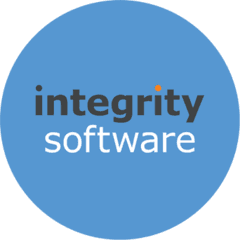Blog
What is Construction Cost Value Reconciliation? Aligning Expectations and Reality
Construction projects are complex and require careful planning, execution, and monitoring to ensure profitability. One critical aspect of managing a construction project is the cost value reconciliation process. “CVR” aims to compare and align the budgeted costs with the actual cost incurred during the project's lifecycle. With cost value reconciliation, project managers can identify any discrepancies, make informed decisions, and improve future project estimations.
The Importance of Cost Value Reconciliation
Cost value reconciliation serves as a fundamental tool to assess the financial health of a construction project. It allows businesses to gauge how well the project is performing against the initial budget. Here are some key reasons that highlight the importance of this process:
Budgeting: Cost value reconciliation enables project managers to identify budget overruns. By understanding the deviations from the budget, they can take corrective actions to maintain financial control.
Forecasting: Reconciling cost values provides insights into potential future expenses, allowing your team to adjust projections and optimise resource allocation.
Decision-Making: Armed with accurate cost data, project stakeholders can make informed decisions about modifications, scope changes, and value engineering opportunities.
Project Performance Evaluation: Comparing planned costs against actual expenditures allows stakeholders to evaluate the performance of the project and the effectiveness of their cost management strategies.
The Process of Cost Value Reconciliation
The cost value reconciliation process involves several key steps:
1. Initial Budget Estimation: At the project's outset, a detailed budget estimation is prepared based on the scope of work, materials, labour, equipment, and other associated costs.
2. Monitoring Costs: Project managers track and record all expenses, including labour, materials, subcontractor fees, equipment rentals, and indirect costs.
3. Regular Reporting: Regular financial reports are generated, comparing actual costs against the budgeted values. These reports help identify discrepancies and trends in project spending.
4. Analysing Variances: By analysing the variances between budgeted and actual costs, project stakeholders can pinpoint areas of concern, such as cost overruns or unexpected savings.
5. Taking Corrective Actions: Based on the findings from the cost value reconciliation, project managers can implement corrective actions to bring the project back on track financially.
6. Documentation: Thorough documentation of the cost value reconciliation process ensures transparency and accountability among all stakeholders.
Doing CVRs the Right Way
An issue conducting CVRs is that most construction companies rely on multiple team members collaborating, and as such they might keep the relevant data on multiple spreadsheets on different people’s devices to compile and track CVRs. This presents problems such as a risk of duplications & errors leading to inaccurate data.
Alongside this potential issue, it can become difficult for multiple people to access CVR reports or collaborate on work without the correct means and if you must relying on generic solutions such as Excel.
A lack of industry specific features severely limits the effectiveness of carrying out accurate CVRs, and can in some cases lead to more problems!
The best way for construction companies to manage CVRs is through a dedicated construction accounting software. This means that CVR reports can be stored and attributed to specific contracts within the system, rather than trying to match up the file name of a separate spreadsheet with the contract name/code.
The easier you make it for your team to carry out Cost Value Reconciliations, the more likely they are to be completed on-time. Our construction accounting software Evolution Mx has a specific Cost Value Reconciliation module to help your team produce accurate CVR reports quickly and easily. We even include CVR templates to get you started, whether you’re new to CVR reporting or it’s already part of your routine.
Conclusion
Construction cost value reconciliation is a crucial process for successfully managing construction projects. It empowers project stakeholders to stay on top of budgets, make informed decisions, and mitigate financial risks. By closely monitoring expenses and comparing them against initial estimates, construction professionals can ensure the project's financial success and deliver projects that meet the expectations of all parties involved.
The lessons learned from the reconciliation process can also be valuable for improving future project estimates and enhancing cost management strategies.
If you’d like to know more about CVR and how a construction accounting software can ensure accurate costing and budgeting, you can reach out to us or explore our industry specific software here.
© Integrity Software Systems Ltd 2024. Part of the JDM Technology Group
Privacy PolicyCookie PolicyWebsite Terms & ConditionsIntegrity Terms and Conditions

